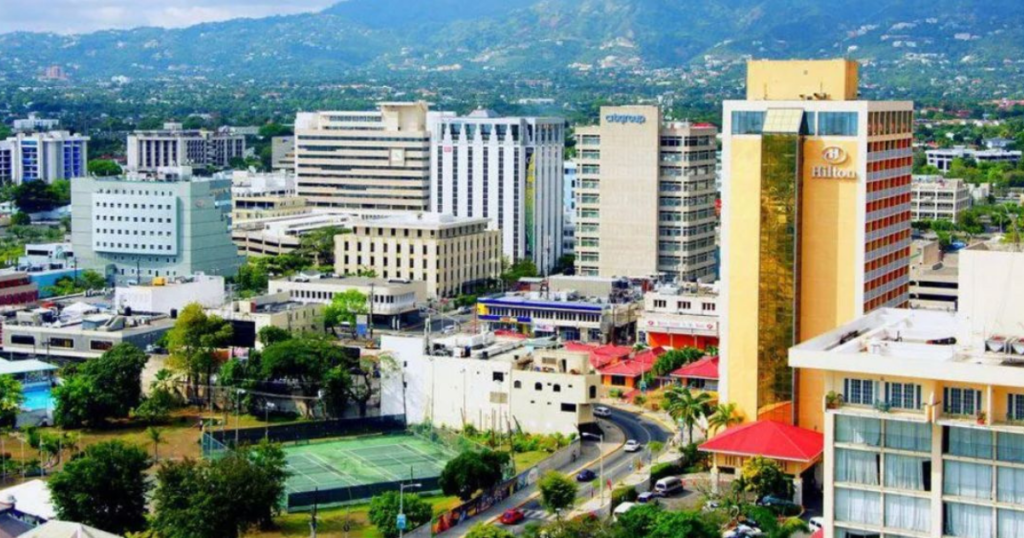The World is still caught in the grips of the COVID-19 pandemic, which disrupted and continues to disrupt global economies and supply chains. Even as China now has resumed resorting to a zero-tolerance approach to new COVID cases, which are being managed through lockdown measures.
Layered atop the pandemic is the conflict between Russia and Ukraine, which threatens a global recession through significantly higher commodity prices, in particular oil and food, such as grains. Global economic growth is therefore expected to be lower at about 3.6% in both 2022 and 2023.
Faced with this complex environment, and armed only with interest rate tools, most global central banks, including the Bank of Jamaica, have resorted to hiking interest rates to combat this supply-driven inflation. Financial institutions across the spectrum, from deposit-taking institutions to broker dealers, are therefore especially vulnerable in this environment of slowing growth, and rising inflation; their financial strength and resilience are therefore key considerations at this juncture.
It is accepted statistically that some financial assets will go bad. Consequently, a well-developed risk-aware culture will implement the necessary provisions to ensure there is enough capital to absorb fall-outs from those bad assets. In that regard, we are speaking about capital adequacy.
According to data published by the Bank of Jamaica, the aggregate capital adequacy ratio for commercial banks, merchant banks, and building societies (“financial institutions”) was 14.2% as at December 2021, compared to the regulatory minimum of 10%.
On the score of capital adequacy, Cornerstone Trust & Merchant Bank (CTMB), was recognised as one of Jamaica’s safest financial institutions due to its industry-leading capital adequacy ratio of 56.6%. The institution also performed admirably in the metric of capital relative to total assets, emerging as the top performer with a ratio of 45.5% in December 2021. In this regard, the next best performer was Citibank, with a ratio of 13.9%.
The level of ‘bad loans’ or more technically non-performing loans (NPLs) is a critical indicator of the financial health of a commercial bank, and, in the aggregate, of the financial sector.
In December 2019, according to data published by the Bank of Jamaica, financial institutions reported, in aggregate, an average of 2.3% in nonperforming loans (NPL) or ‘bad loans’ as a percentage of total loans. Contrary to the expected drastic increase in NPLs during the pandemic, local financial institutions utilised various forms of borrower support to minimise increases in their NPL ratios.
The industry’s NPL ratio at the end of 2020 industry-wide was 2.8%, with a further slight increase to 3% in 2021. However, despite robustly expanding credit during the same period, CTMB recorded zero NPLs during 2020 and 2021, a feat the company attributes to expert underwriting and robust risk management practices.
Given the overall level of uncertainty currently in financial markets, the rising interest rates environment, and a significant global geopolitical event, local securities dealers are expected to maintain sufficient capital adequacy, as measured by the capital to risk-weighted asset ratio as well as maintain prudent levels of leverage.
Industry-level data shows that the capital to risk-weighted asset ratio as of December 2021 was 25.3%. During the same period, Cornerstone’s subsidiary, Barita Investments Limited, reported a capital to risk-weighted asset ratio of 52.7%, placing Barita first among the top securities dealers on this metric, followed by Scotia Investments with 49.3%.
Barita was also recently assigned an A-rating for its corporate governance practices by an independent body established by the PSOJ and the JSE. Barita’s A-rating compares to the CC rating of the average listed company assessed by the Corporate Governance Index Review Committee.
Based on several reports in the press, the Cornerstone Group have applied for a financial holding company license from the BOJ consistent with the requirements of the Banking Services Act.
Commenting on Barita’s success, Cornerstone CIO Jason Chambers noted, “Considering the continued volatility in financial markets, securities dealers are in the direct line of fire, so to speak, and therefore require strong prudential buffers. Therefore, the capital adequacy ratio of a securities dealer is perhaps the single most important indicator of that institution’s ability to withstand negative shocks and, therefore, its safety.
We see our risk management and governance infrastructure and practices as evolving and so our journey over the past three and a half years, half of which has been marked by the COVID-19 pandemic, has not been perfect. We are always open to ensuring that our experiences in the business inform our internal discipline around the continual assessment of opportunities to further strengthen our systems and processes”.
Barita also performed among the top of its class on the leverage metric, another important variable used by securities dealers to boost their return on equity. Based on data from the Financial Services Commission (FSC), leverage among securities dealers in December 2019 was 5.7x. But increased fairly sharply to 6.7x in March 2020, given the peak market stress and reduced to 5.8x in December 2021.
However, Barita’s leverage ratio as of December 2021 was less than one-half the industry average, being reported at 2.5x. Management attributes this low figure to a deliberate decision to exercise prudence in business operations, even as it seeks to moderately increase leverage towards 4.0X as it continues to grow the business.
Chambers further shared, “This low leverage reflects Barita’s strategy to capitalize its business such that it is best enabled to undertake principal investments of a long-term nature in assets that are considered key underpinnings to national and regional development. The foregoing is consistent with our objective of delivering sustainable, superior risk-adjusted returns to all stakeholders in our business.”
Barita stands up very well against several prudential measures to include governance and risk management aimed at protecting investors and ensuring that the institution can weather any further market drawdowns, which are possible in the current and future financial climates.
Reflecting on the vital role financial institutions play in Jamaica’s continued development, Paul Simpson, Cornerstone CEO concluded, “Jamaica’s ability to evolve beyond the last decade marked by macroeconomic stability and fiscal austerity to the next phase of our developmental journey which has to be concentred by sustainable economic growth, is closely tethered to financial institutions having robust levels of capital and being well-positioned to support real sector capital investments to include real estate and infrastructure development whilst partnering with the public sector towards securing our food and energy security; the latter being of great national strategic importance given the adverse impact of the pandemic and the ongoing conflict in Eastern Europe which has placed severe stress on global supply chains relating to distributions of certain commodities including food and key conventional energy inputs. Strong financial institutions are key tenets of the future that we are all working hard to build, which is why Cornerstone emphasizes governance, prudent care of capital, and robust risk management practices. These principles underpin all our operations.”
The general level of capitalization of the various players in the financial services sector is materially higher than the regulatory minimum ratios and above the comparable industry median in even more advanced economies than Jamaica. This augurs well for the resilience of our financial sector as we brace for the further impact of global headwinds on both Jamaica’s productive and financial sectors.
Amidst continued global economic and supply chain disruption, the Cornerstone entities, Barita and CTMB, have emerged as leaders in their classes based on the critical safety indications of capital adequacy, leverage, and asset quality. On the basis of the foregoing critical prudential indicators on which investors, depositors, regulators, and key stakeholders place primary reliance, Barita and CTMB rank as the top and safest financial institutions in Jamaica.




